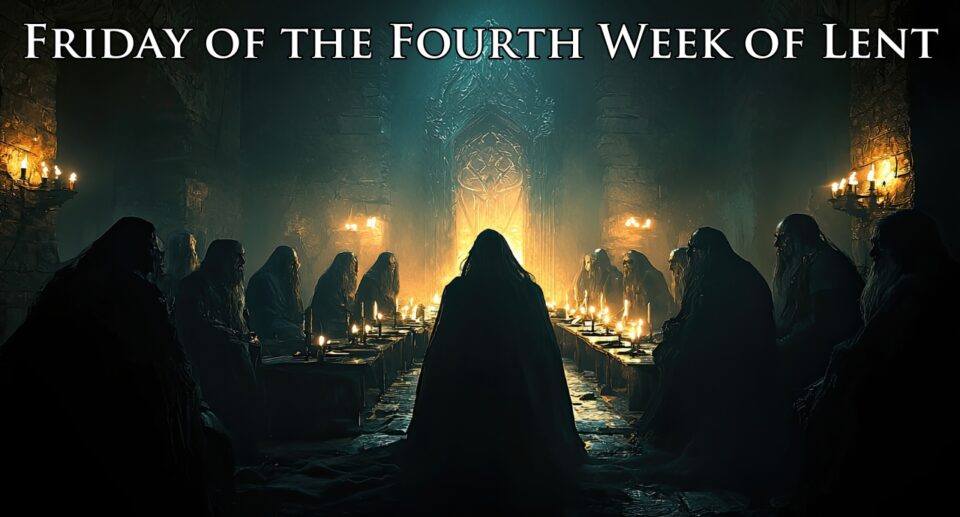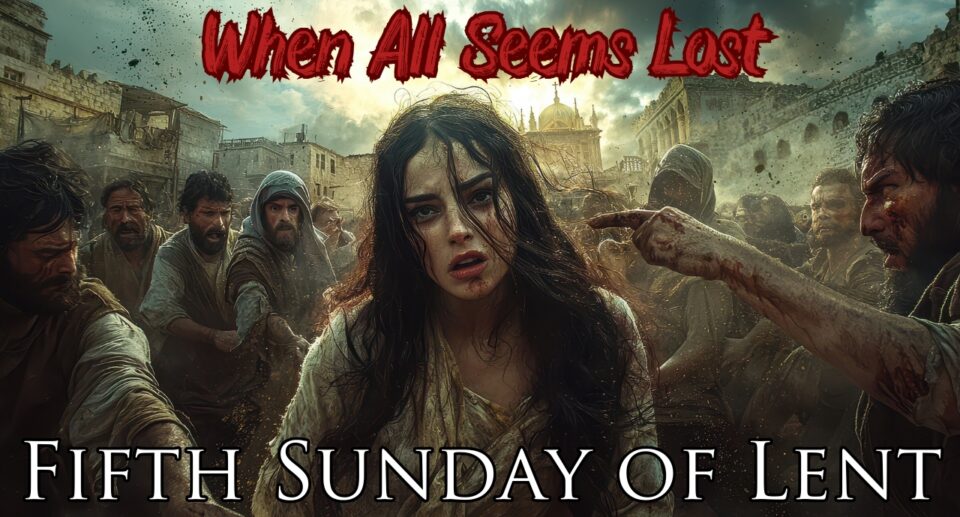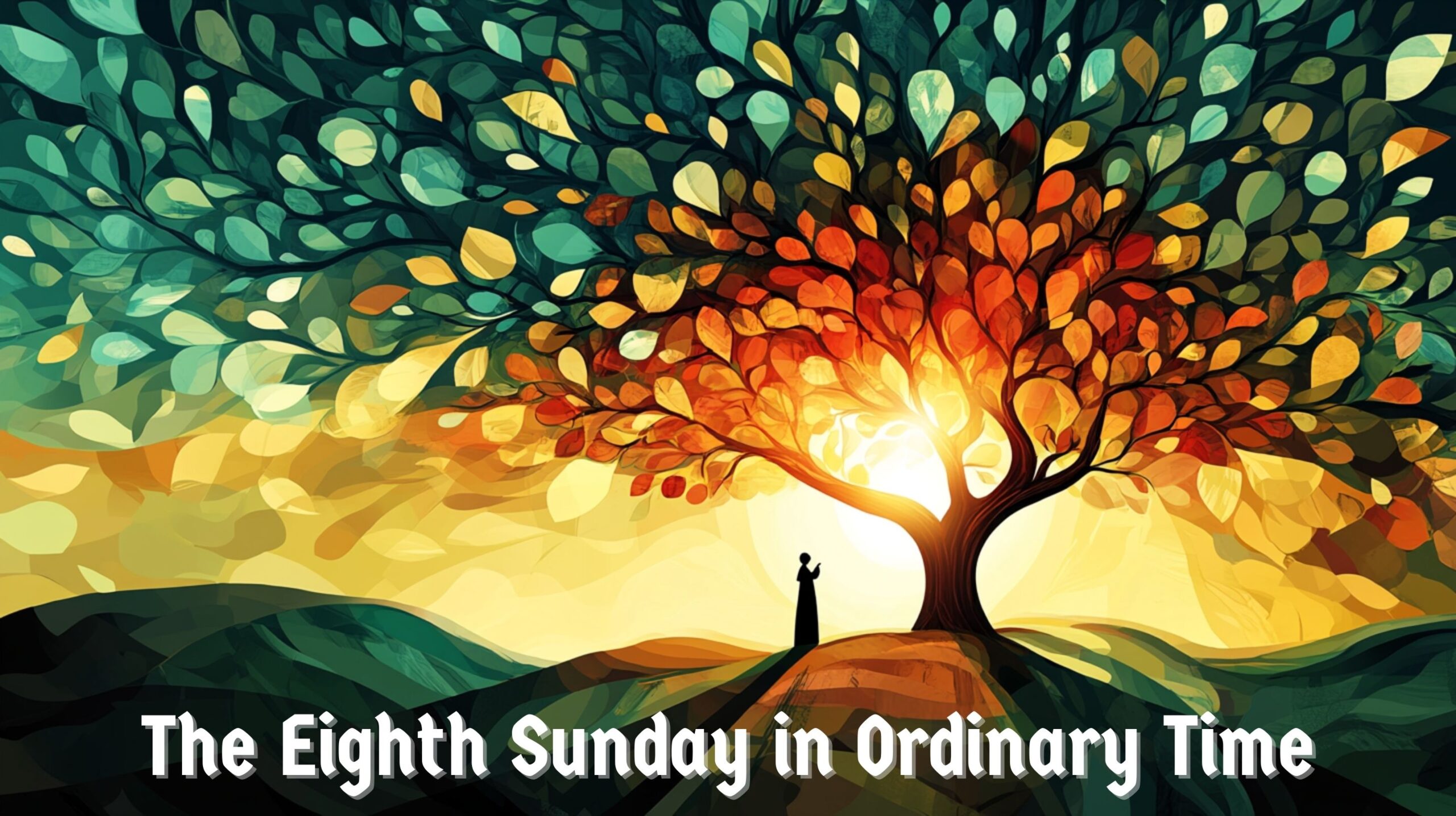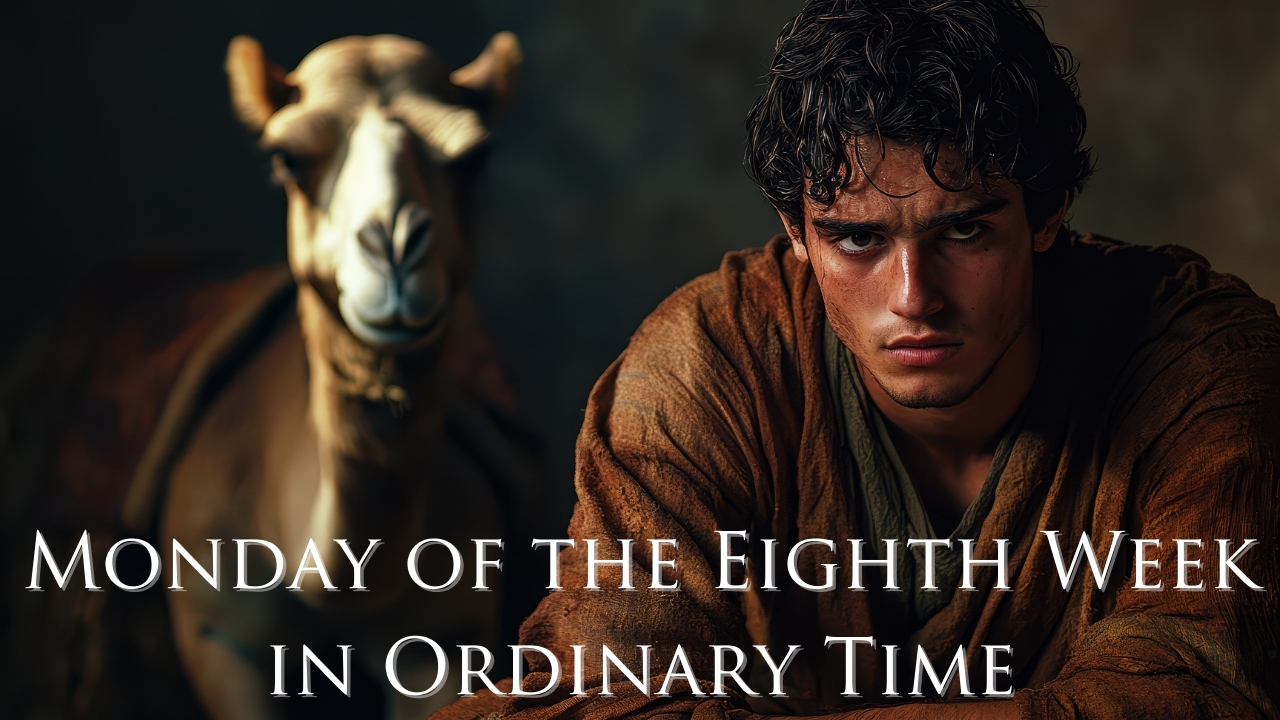Whispers in the Dark: Finding God in Betrayal | Daily Readings | April 5, 2025
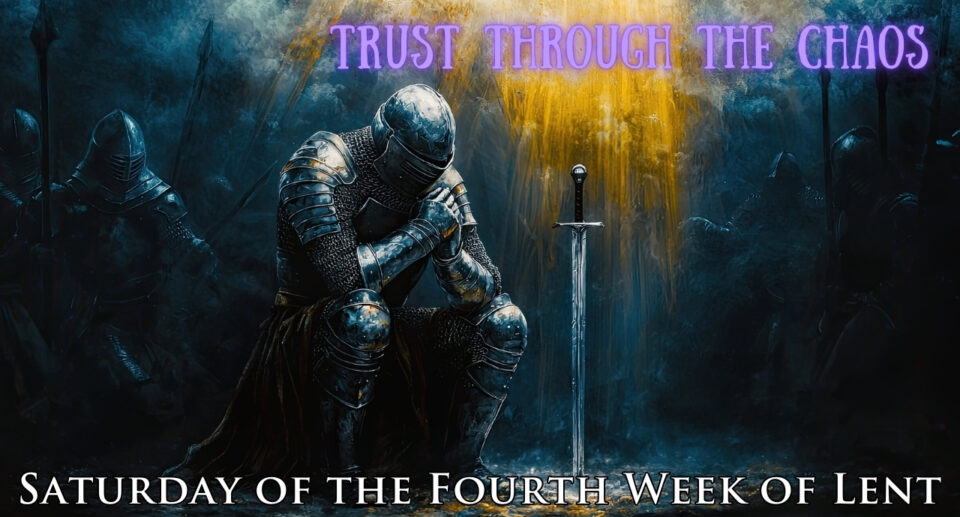
🔍 BETRAYAL, PLOTS & DIVINE PROTECTION: The Spiritual Battle You’re Facing!
When others plot against you, God has already prepared your defense. Discover how Jeremiah’s ancient struggle mirrors your own modern battles.
This powerful reflection unpacks the profound connection between Jeremiah’s experience of betrayal, the Psalmist’s cry for justice, and the religious leaders’ rejection of Jesus. More than historical accounts, these readings offer a spiritual roadmap for navigating your own moments of betrayal and conflict.
⚡ WHAT YOU’LL DISCOVER:
- The liberating power of bringing raw, unfiltered emotions to God
- How to maintain integrity when others plot against you
- The surprising connection between Jeremiah and Jesus
- 3 practical spiritual practices for times of betrayal
📖 READINGS EXPLORED:
- Jeremiah 11:18-20
- Psalm 7:2-3, 9bc-10, 11-12
- John 7:40-53
PERFECT FOR:
- Anyone experiencing workplace betrayal or relationship challenges
- Those feeling misunderstood or falsely accused
- Spiritual seekers looking for authentic faith practices
- Anyone preparing their heart for Holy Week
⏰ Length: Life-changing 12-minute spiritual journey
🙏 SUBSCRIBE NOW for daily Lenten reflections and our upcoming Holy Week series!
#Betrayal #Faith #Lent2025 #TrustingGod #DivineProtection
💡 “Sometimes your greatest spiritual growth comes through your deepest human pain.”
Whispers in the Dark: Finding God When Others Plot Against You
Have you ever felt betrayed? Have you ever discovered that someone you trusted was speaking against you behind your back? If so, you’ve experienced a small taste of what Jeremiah describes in today’s first reading.
“The LORD revealed it to me, and I knew,” Jeremiah writes. What a chilling moment of realization—the prophet discovers a plot against his life, orchestrated by those he should have been able to trust. “Like a trusting lamb led to slaughter,” he describes himself, a haunting image that would later be echoed in the experience of Christ himself.
This is not just an ancient story. This is a profoundly human experience that repeats itself across generations.
In our own lives, betrayal cuts uniquely deep. When a colleague undermines us at work, when a friend shares our secrets, when someone we love breaks our trust—these experiences shake our foundations. They make us question not just others, but ourselves. Was I naive? Should I have seen it coming? Can I ever trust again?
The beauty of this reading is that Jeremiah doesn’t hide his pain or confusion. He brings it directly to God: “O LORD of hosts, O just Judge, searcher of mind and heart, let me witness the vengeance you take on them.” This isn’t a politically correct prayer. This is raw, honest emotion before God.
And here’s where we find the first life-changing truth: God doesn’t require us to sanitize our feelings. God invites our authentic, messy, complicated emotions. The psalms are filled with similar cries for justice, similar expressions of hurt and desire for vindication.
The Responsorial Psalm continues this theme: “O LORD, my God, in you I take refuge; save me from all my pursuers and rescue me.” This isn’t abstract theology—this is survival spirituality. This is what faith looks like when your back is against the wall.
But notice the evolution in the psalm: “O LORD, my God, if I am at fault in this, if there is guilt on my hands… then let my enemy pursue and overtake me.” The psalmist is willing to examine his own heart, to consider his own responsibility. This shows a remarkable spiritual maturity—the ability to seek justice while remaining open to personal growth.
The Gospel reading takes us into another scene of division and plotting. As crowds argue about Jesus’s identity, as religious leaders send guards to arrest him, as Nicodemus makes a cautious defense—we witness the human tendency to categorize, to dismiss, to silence what challenges us.
“Look and see that no prophet arises from Galilee,” they conclude, revealing how easily we use superficial criteria to dismiss profound truth.
These readings offer us three transformative invitations for our own lives:
First, bring your authentic pain to God. Like Jeremiah, we don’t need to pretend. The God who created human emotion can handle yours—your anger, your hurt, your desire for justice. Prayer isn’t about being pious; it’s about being real.
Second, remain open to self-examination. Even in our justified hurt, the psalmist reminds us to check our own hearts. Have I contributed to this situation? Do I have blind spots I’m not seeing? This isn’t about taking blame for others’ actions, but about maintaining spiritual integrity.
Third, beware of easy dismissals. How often do we, like the religious leaders, use superficial criteria to dismiss voices that challenge us? “He’s too young to have wisdom.” “She doesn’t have the right credentials.” “They come from the wrong background.” Truth often comes from unexpected places.
The thread connecting these readings is clear: navigating a world of human conflict while maintaining spiritual integrity. Jeremiah’s experience foreshadows Christ’s passion. The psalmist’s prayer models honest faith. The Gospel shows how easily we can miss truth when it doesn’t match our expectations.
Imagine what our world would look like if we practiced these principles. If we brought our authentic selves to God without pretense. If we remained open to growth even when wronged. If we listened for truth in unexpected places.
As we approach Holy Week, these readings invite us to walk alongside Jesus—to understand more deeply what it meant for him to be the “trusting lamb led to slaughter,” to recognize how easily we might have been among those who dismissed him, and to commit ourselves to a faith that is both authentic and open.
In your own life right now:
- What pain needs to be honestly expressed to God?
- Where might you need to examine your own heart?
- What voices might you be dismissing that contain truth you need to hear?
The God who heard Jeremiah, who inspired the psalmist, who spoke through Jesus—this same God walks with you through every betrayal, every conflict, every moment of confusion. You are never alone in the darkness.

